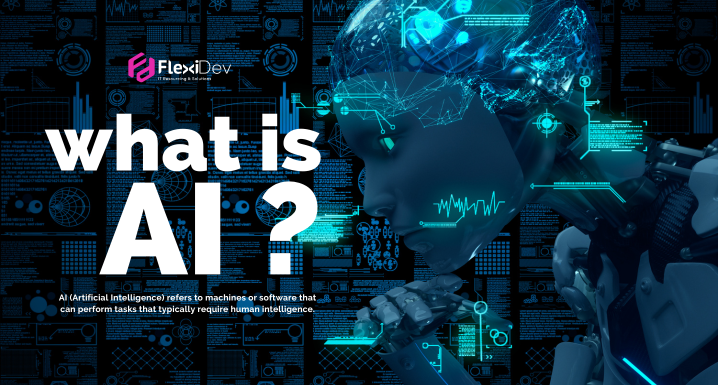
AI (Artificial Intelligence) refers to machines or software that can perform tasks that typically require human intelligence. This includes things like learning from data, solving problems, recognising patterns, making decisions, and even understanding language.
Types of AI
- Narrow AI (Weak AI):
AI designed for specific tasks, like ChatGPT, Siri, Google Translate, and recommendation algorithms.
It doesn’t think – it follows patterns in data. - General AI (Strong AI):
AI that can think, learn, and reason like a human (we don’t have this yet).
The goal of AI research, but still far from reality. - Super AI:
AI that surpasses human intelligence (purely theoretical for now).
How AI Works
- Machine Learning (ML): AI learns from data and improves over time.
- Deep Learning (DL): AI uses neural networks (like a human brain) to analyse complex patterns.
- Natural Language Processing (NLP): AI understands and processes human language (like ChatGPT).

AI in Everyday Life
Google Search & YouTube recommendations
Self-driving cars
Chatbots & customer support
Medical diagnosis & fraud detection
Smart assistants (Alexa, Siri, Google Assistant)
AI in Software Development
- Code generation & debugging (GitHub Copilot, ChatGPT)
- Automated testing & security scanning
- AI-powered recommendations & data analytics
The Future of AI
AI is evolving rapidly, but it’s a tool, not a replacement for humans. The best developers understand AI, use it wisely, and build on top of it – not just rely on copy-pasting!
Want to learn more? Let’s discuss!



